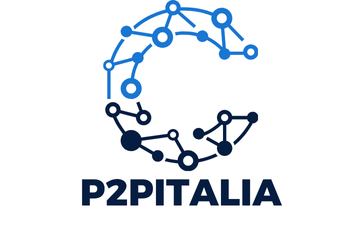Fintech startups in the UK face unique cybersecurity challenges as they strive for innovation while protecting sensitive data. An effective strategy balances regulatory compliance, risk management, and cutting-edge technology. This guide offers a comprehensive, step-by-step approach to building a robust cybersecurity framework tailored specifically for fintechs. By addressing specific threats and implementing proactive measures, startups can safeguard their operations, instil trust, and pave the way for sustainable growth. Equip your business with the knowledge and tools to thrive in an evolving digital landscape.
Importance of Cybersecurity in Fintech
In the rapidly evolving landscape of fintech, the significance of cybersecurity cannot be overstated. As fintech startups innovate, they face a myriad of security risks. These threats range from data breaches to sophisticated cyber-attacks, posing a substantial challenge to maintaining secure operations.
Also to discover : Unlocking Fundraising Potential: Strategies for UK Non-Profits to Harness Facebook Ads Effectively
Cybersecurity threats are particularly daunting for fintech startups due to their reliance on digital platforms and sensitive financial data. With increasing incidents of hacking and data theft, the importance of cybersecurity becomes paramount. A single breach can lead to severe financial losses and damage to a company's reputation, potentially crippling operations.
The implications of security breaches extend beyond immediate financial losses. They can erode customer trust, an essential component for any fintech company's success. Trust is built through robust security measures, ensuring customer data is protected and transactions are secure. Without this trust, customer retention becomes challenging, impacting the company's growth and sustainability.
Additional reading : Transforming Patient Care: Unleashing the Power of Telemedicine in the UK Healthcare System
To mitigate these risks, fintech companies must prioritize cybersecurity. This involves implementing advanced security protocols, regularly updating systems, and educating employees about potential threats. By doing so, fintech companies not only protect themselves but also foster a secure environment that reassures their customers, ultimately strengthening their market position.
Step-by-Step Framework for Cybersecurity Strategy
Creating a robust cybersecurity strategy is vital for fintech startups. A well-structured cybersecurity framework offers a clear path to safeguarding sensitive data and maintaining trust. This step-by-step guide will help in developing a comprehensive plan.
Essential Components of a Cybersecurity Strategy
A successful cybersecurity strategy begins with a thorough risk assessment. Identify potential threats and vulnerabilities specific to your fintech environment. Next, establish security policies that define acceptable use and data protection measures. Implement strong access controls to ensure only authorised personnel can access sensitive information.
Phases of Developing a Comprehensive Cybersecurity Plan
The development of a cybersecurity plan can be broken down into several phases:
- Assessment: Evaluate current security measures and identify gaps.
- Planning: Develop a detailed action plan addressing identified risks.
- Implementation: Deploy necessary security technologies and protocols.
- Monitoring: Continuously monitor systems for suspicious activities.
- Review and Update: Regularly update the strategy to adapt to new threats.
Importance of Tailored Strategies for Fintech Startups
Fintech startups must tailor their cybersecurity framework to their unique needs. This involves considering the specific technologies and data they handle. Customised strategies ensure that security measures are both effective and efficient, providing optimal protection without unnecessary complexity.
Risk Assessment and Management
Understanding and managing cybersecurity risks is crucial for fintech companies. Identifying these risks begins with a comprehensive risk assessment. This process involves analysing the specific threats that fintech companies face, such as data breaches and phishing attacks. By pinpointing these vulnerabilities, companies can better prepare and protect themselves.
Conducting an effective risk assessment requires a systematic approach. Start by gathering detailed information about your digital infrastructure. This includes software, hardware, and data flow. Evaluate each component for potential weaknesses that could be exploited by cybercriminals. Once identified, these vulnerabilities should be documented and prioritised based on their potential impact.
Fintech risk management involves implementing strategies to mitigate these identified risks. Prioritisation is key. Focus on high-impact risks first, deploying resources where they are most needed. Strategies might include enhancing encryption protocols, implementing multi-factor authentication, and conducting regular security audits.
To ensure ongoing protection, it's vital to regularly update your risk management strategies. As technology evolves, so do the threats. By staying informed and adapting your security measures, you can maintain a robust defence against cyber threats. This proactive approach not only safeguards your operations but also builds trust with your clients, reinforcing your market position.
Best Practices for Cybersecurity Implementation
Implementing effective cybersecurity best practices is essential for fintech companies aiming to protect sensitive data. A comprehensive implementation guide can help in establishing robust security protocols.
Developing Strong Passwords and Authentication Measures
One fundamental practice is the creation of strong passwords. Encourage employees to use complex combinations of letters, numbers, and symbols. Passwords should be unique and changed regularly to prevent unauthorized access. Additionally, implementing robust authentication measures is crucial. This includes setting up systems to verify user identities before granting access to sensitive information.
Regular Security Training and Awareness for Employees
Security training is vital in maintaining a secure environment. Regularly educate employees about potential cyber threats and how to recognize them. Training should cover the importance of safeguarding personal and company data, recognising phishing attempts, and the consequences of security breaches. Awareness programs empower employees to act as the first line of defence against cyber threats.
Implementing Multi-Factor Authentication and Encryption
Multi-factor authentication (MFA) adds an extra layer of security by requiring multiple verification steps. Implementing MFA reduces the risk of unauthorized access significantly. Encryption is another critical element, ensuring that data is unreadable to unauthorized users. By encrypting sensitive information, fintech companies can protect customer data and maintain trust.
Regulatory Considerations in the UK
Navigating UK Cybersecurity Regulations is crucial for fintech companies operating in the region. The Fintech Regulatory Framework in the UK is designed to protect consumer data and ensure financial stability. Key regulations include the General Data Protection Regulation (GDPR) and the Financial Conduct Authority (FCA) guidelines, both of which impose stringent requirements on data handling and security practices.
GDPR is particularly significant as it mandates the protection of personal data, requiring fintech companies to implement robust security measures. Non-compliance can lead to heavy fines and reputational damage. The FCA, on the other hand, focuses on maintaining market integrity and protecting consumers, with specific rules for data security and risk management.
To ensure compliance, fintech companies should take several steps:
- Conduct regular audits to assess adherence to regulatory standards.
- Implement comprehensive data protection policies.
- Train employees on compliance and data protection protocols.
- Engage with legal experts to navigate complex regulations effectively.
Understanding and adhering to these regulations not only helps in avoiding legal penalties but also builds trust with customers by demonstrating a commitment to data security and ethical practices. By prioritising compliance, fintech companies can foster a secure and trustworthy environment for their operations.
Real-World Examples of Cybersecurity Success and Failures
Exploring cybersecurity case studies in fintech provides valuable insights into both triumphs and pitfalls. Analysing these examples helps in understanding effective strategies and common vulnerabilities.
Notable Cybersecurity Breaches in Fintech
One significant breach involved a fintech company that suffered a severe data leak due to inadequate encryption protocols. This incident highlighted the critical need for robust encryption as a defence against unauthorised access. Another case saw a startup fall victim to a phishing attack, where employees unknowingly provided access credentials to hackers. These examples underscore the importance of continuous security training.
Successful Cybersecurity Strategies
Conversely, some fintech startups have excelled in implementing successful cybersecurity strategies. A notable example is a company that adopted multi-layered security measures, including multi-factor authentication and regular system audits. This proactive approach not only protected sensitive data but also enhanced customer trust.
Lessons Learned from Case Studies
The key lessons learned from these case studies emphasise the necessity of comprehensive risk assessments and the implementation of strong cybersecurity measures. Regular updates and employee education play a pivotal role in safeguarding fintech operations. By learning from both successes and failures, companies can better equip themselves to handle future cybersecurity challenges.
Tools and Resources for Cybersecurity Implementation
In the realm of fintech, leveraging the right cybersecurity tools is crucial for safeguarding sensitive data. These tools are designed to protect against a variety of threats, enhancing the security framework of any fintech startup. Essential cybersecurity tools include firewalls, intrusion detection systems, and encryption software, each playing a vital role in maintaining data integrity and security.
To support effective implementation, fintech companies should utilise a range of resources. Online platforms offer extensive educational materials on cybersecurity best practices, helping teams stay informed about the latest threats and solutions. Resources such as webinars, tutorials, and forums foster a culture of continuous learning and adaptation.
Engaging cybersecurity experts is another critical component for fintech security. Consultants provide tailored advice, helping startups navigate complex security challenges and implement robust solutions. Their expertise ensures that companies adopt the most effective strategies, customised to their unique needs.
-
Recommended Tools:
-
Firewalls
-
Intrusion detection systems
-
Encryption software
-
Educational Resources:
-
Online courses
-
Webinars
-
Expert forums
By integrating these tools and resources, fintech startups can significantly enhance their security posture, ensuring a safer environment for both their operations and their clients.
Building a Security Culture within the Organization
Creating a robust security culture is essential for fintech companies aiming to protect sensitive data and maintain trust. A strong security culture begins with comprehensive employee training. Regular training sessions should be conducted to educate staff on the latest cybersecurity threats and best practices, ensuring they are well-prepared to handle potential risks.
To foster a culture of security awareness, it's crucial to integrate organizational security into everyday operations. Encourage employees to adopt a proactive approach by reporting suspicious activities and participating in security drills. This not only enhances their understanding of security protocols but also empowers them to act as the first line of defence.
Continuous education is vital. Implement ongoing training programs that evolve with emerging threats. These programs should be engaging and interactive, using real-world scenarios to highlight the importance of cybersecurity. By doing so, employees remain vigilant and informed, contributing to a safer organizational environment.
Encouraging open communication about security issues can further strengthen the security culture. Create channels for employees to share concerns and suggestions, fostering a collaborative atmosphere. This approach not only builds trust but also ensures that security remains a priority across all levels of the organization.
Incident Response Planning
An effective incident response plan is crucial for fintech companies to swiftly address and mitigate cybersecurity breaches. The plan should include clear protocols and procedures that guide the organisation through the stages of detection, analysis, containment, eradication, and recovery. Emergency response teams must be well-defined, with roles and responsibilities clearly assigned to ensure a coordinated effort during an incident.
Regular drills and updates to the cybersecurity plan are essential for maintaining preparedness. These drills simulate potential breaches, allowing teams to practice their response and identify any weaknesses in the plan. By regularly updating the plan, companies can adapt to new threats and technologies, ensuring they remain resilient against evolving cyber risks.
In the event of a cybersecurity breach, immediate steps must be taken to minimise damage. Begin by identifying and assessing the scope of the breach. Next, implement containment measures to prevent further spread. Eradicate the threat by removing malicious elements from the system. Finally, focus on recovery, restoring affected systems and data while communicating transparently with stakeholders.
By prioritising incident response planning, fintech companies can effectively protect their operations and maintain trust with their clients, ensuring a robust defence against cyber threats.
Future Trends in Cybersecurity for Fintech
In the dynamic world of fintech, emerging trends in cybersecurity are shaping the future of security practices. As technology advances, so do the methods used by cybercriminals, making it crucial for fintech companies to stay ahead.
One significant future of cybersecurity trend is the integration of artificial intelligence (AI) and machine learning. These technologies enhance threat detection by analysing vast amounts of data to identify unusual patterns, enabling quicker responses to potential threats. AI-driven solutions offer predictive insights, allowing fintech companies to anticipate and mitigate risks before they escalate.
Another emerging trend is the adoption of blockchain technology for enhanced security. Blockchain's decentralised nature ensures data integrity and transparency, reducing the risk of tampering and fraud. This innovation is particularly beneficial for securing transactions and sensitive financial data.
Fintech startups must prioritise staying informed about these fintech innovations to maintain a competitive edge. Regularly updating security protocols and investing in cutting-edge technologies can significantly bolster a company's defence mechanisms. By embracing these emerging trends, fintech companies not only enhance their security posture but also build trust with their clients, ensuring long-term success in an ever-evolving digital landscape.











